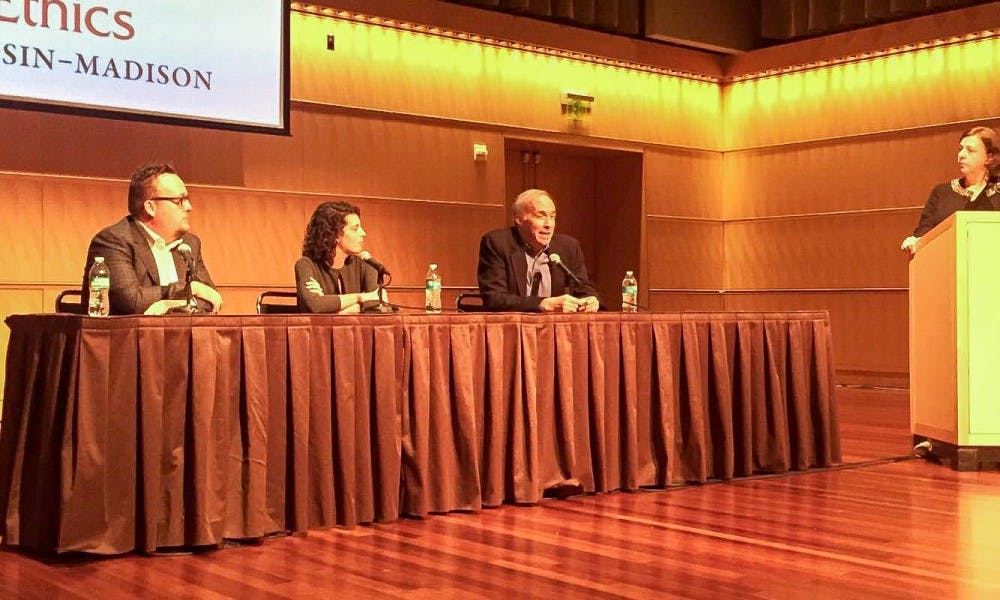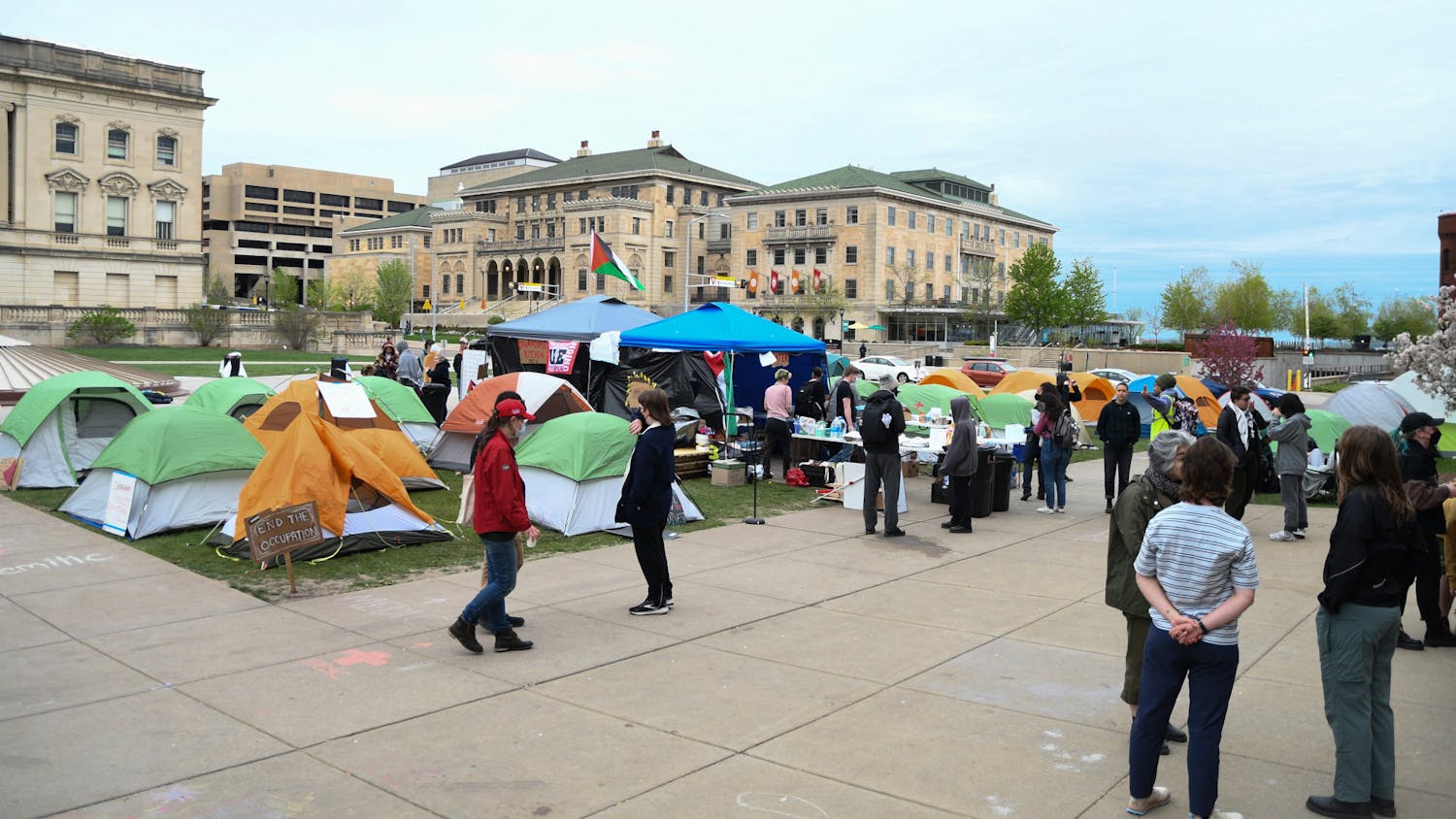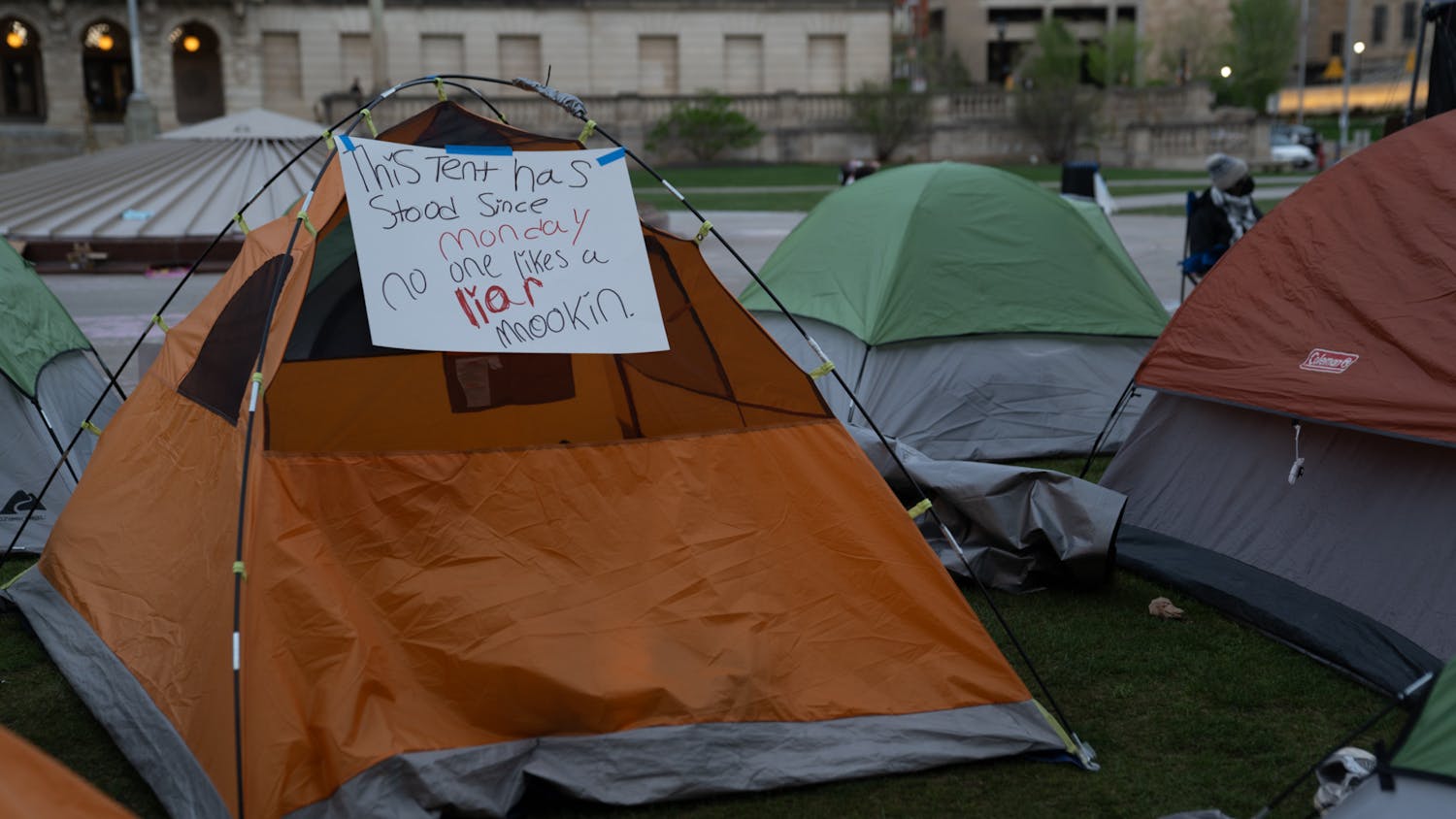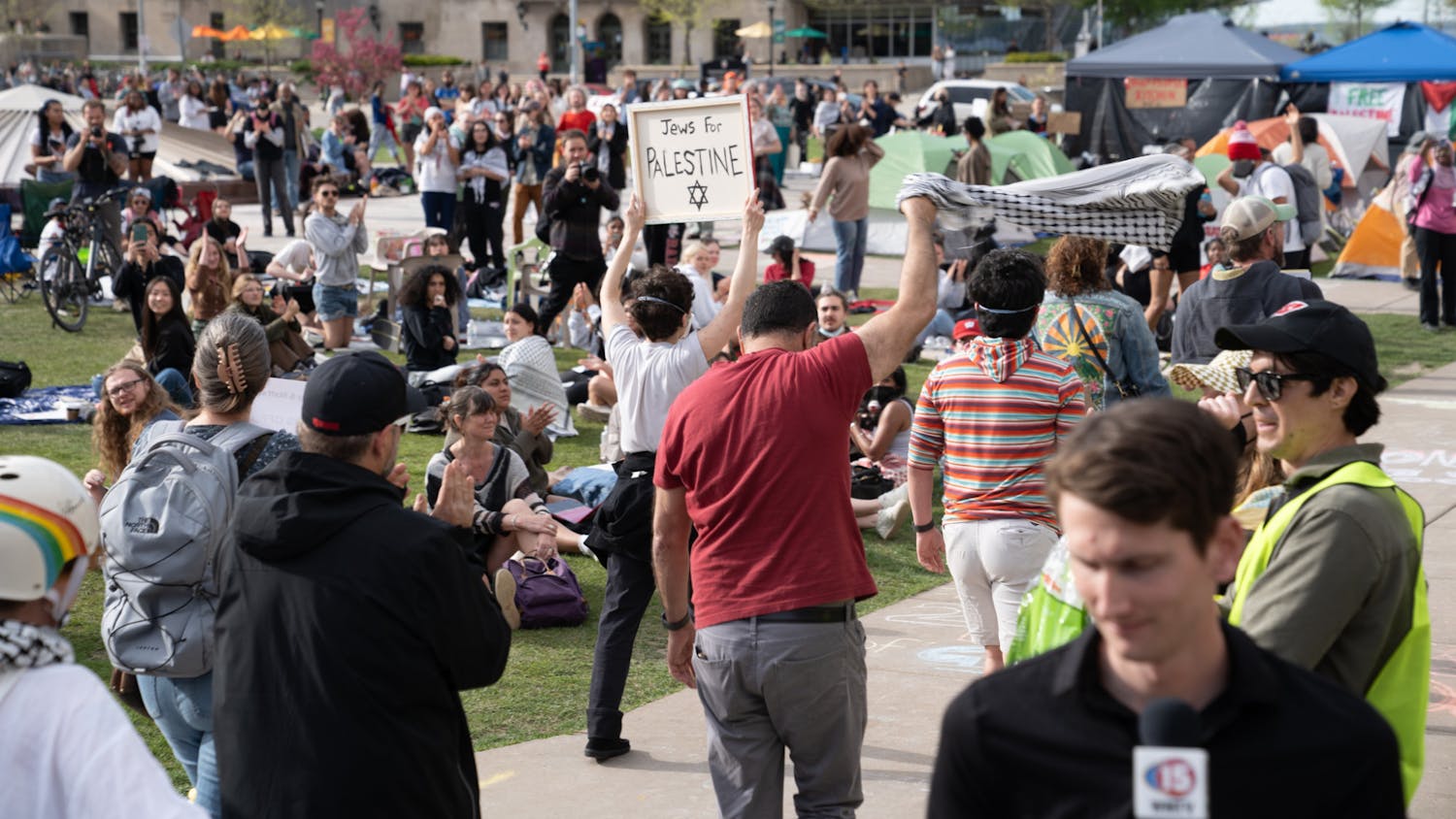November’s election left not only both major political parties in a crisis of
The event, organized by UW-Madison’s Center for Journalism Ethics, discussed the role of political journalism in presidential elections and the relationship between news media and the electorate.
Following a general election where few pollsters, pundits or journalists accurately predicted the result, public distrust of the media is at an
Michael Wagner, an associate professor in the UW-Madison School of Journalism and Mass Communication, said he thought this was relatively unfair.
“I’m not sure we should have expected an easy Clinton victory in the first place,” Wagner said. “I think the public, the news media, and many scholars … got swayed by the aggregated polls, rather than the explanations that usually explain to us what determine election results.”
Considering the accuracy of polling in the 2012 election, the panelists debated whether or not political journalists had come to rely too heavily on polling data to influence their analysis.
“Not only did polls consistently show Hillary Clinton ahead, but there was never a single poll in the state of Wisconsin over the course of a year and a half ... in which Donald Trump led,” said Milwaukee Journal Sentinel Washington Bureau Chief Craig Gilbert.
States that helped carry Republican nominee Donald Trump to an electoral victory, like Wisconsin and Michigan, were largely thought to be safe bets for Democratic nominee Hillary Clinton.
Trump campaigned heavily in these states and managed to generate the largest level of support among non-college educated whites in history, at 67 percent, according to Pew Research Center, speaking to the power of factors like demographics in electoral results.
“There were 540 cities, towns, and villages in Wisconsin that voted for Obama in 2012 and for Trump in 2016,” Gilbert said. “The shifts were not minor, I mean, there were places that Obama won by twenty or thirty points that Trump won by twenty or thirty points.”
Not only were the electoral results a shock to Democrats, but to Republicans as well.
“The Trump team’s data and the Clinton team’s data both told them Trump was going to lose, so this was a surprise to everyone,” said Molly Ball, a political writer






